#ChoosePaediatrics




Paediatrics cares for infants, children and young people affected by a large and diverse range of medical conditions. From acute sub-specialties, such as neonates or paediatric intensive care medicine, to community-based areas in neurodisability and community child health, and everything in between.

Paediatrics is a popular, dynamic, growing specialty that is constantly evolving in order to meet new challenges. This has become particularly apparent as society changes and children face newly-emerging risks such as the impact of the online world. The nature of paediatrics combined with advances in medical service make it an exciting specialty where there is opportunity to make medical discoveries.
•
•
•
•
•
•
•
committed to promoting the welfare of children
able to be patient, sensitive and empathetic
approachable and diplomatic
comfortable with an information and flexible environment
good at communicating with a wide range of people
someone who thrives in a team situation
fun loving with a good sense of humour
is
Someone who thrives in a team situation
Comfortable to work in a flexible environment
Fun loving with a good sense of humour!
Able to be patient, sensitive and empathetic
Committed to promoting the welfare of children
Approachable and diplomatic Good at communicating with a wide range of people
Are you:
“Choosing paediatrics as your career path is a huge decision. As with any significant life choice, it is very important to take your time, gather as much useful information to help as you can, talk to people who know you and who know the specialty. Our #ChoosePaediatrics programme is designed to help you investigate and consider your options.
Camilla Kingdon President RCPCH Emma Coombe Trainee paediatrician
Some might describe my journey through paediatric training as having taken the scenic route. I’ve constantly sought out opportunities to mould a career and training journey that has suited my own interests, and paediatrics has given me the flexibility to do so. There truly is something for everyone in paediatrics.
Paediatrics is fun! You will never stop learning and you will never stop laughing. Somehow children always manage to bring out the child in you, even on the most challenging of days. Like I did, check out the #ChoosePaediatrics programme, consider an application to the specialty, and I hope one day we will work together.
Dr Kish Gandhi Clinical fellow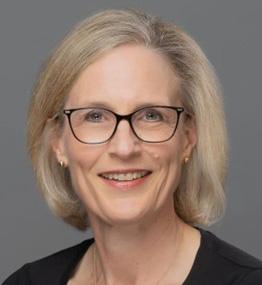
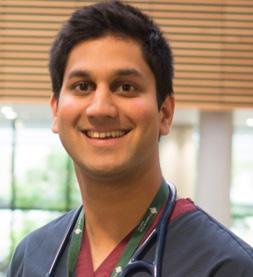
Paediatric training in the UK offers a range of possibilities, allowing you to take your career in the direction that suits you. An innovative, capabilitybased curriculum underpins the programme, which will equip you with the skills needed to become a consultant paediatrician.
You will have opportunities for academia, research, broad generalist and sub-specialty training, as well as flexible working and other experiences set outside the programme itself.
Paediatrics is a run-through specialty, meaning that, as a trainee, you can move through your training programme without the need to take assessments at the end of each year or level. Training used to be eight years in length, across three levels, has since changed to seven years, across two levels, Core and Specialty in 2023. The only examination requirement is the MRCPCH, which should be completed over the course of the first four years of training.
The training is capability-based, not timebased - although you will need to complete at least four years in the training programme to be eligible for a Certificate of Completion of Training (CCT). Some trainees may complete training earlier, whilst some will take advantage of other opportunities afforded by paediatric training in the UK and will complete their training in around eight years, often more, ensuring they move onto their first consultant role feeling as prepared as possible.
The recruitment process for entry into UK paediatric training takes place alongside the other specialties, as part of the National Recruitment process that recruits to posts across England, Northern Ireland, Scotland and Wales. As such, your application will be to a UK vacancy, within which you can preference as many of the posts available as you like. Try not to limit your options but only select those in regions that you definitely would be happy to work in.
During the recruitment process, you will be assessed across a variety of areas, including communication skills, career motivation, reflective practice along with your knowledge of managing clinical and governance issues. Scoring is based partly on the free-text sections of the online application and on the interview, which is currently carried out remotely. You are advised to study the person specifications closely and ensure that you meet all required eligibility criteria before making your application, via the Oriel system.
It is important to note that there is no requirement for applicants to Specialty Training 1 (ST1) to have had any paediatric experience. You will be assessed on the individual skills required of a good paediatrician and will be expected to demonstrate your aptitude and suitability for the specialty at interview; not to mention your enthusiasm for pursuing a career in our specialty!
For full guidance and information, visit: www.rcpch.ac.uk/resources/paediatric-subspecialty-training-application-guidance

Paediatrics is a capability-based training programme, where a trainee’s progression is determined on ability rather than whether they have ticked off a certain number of clinics or spent a certain amount of time in a specialty. This also allows trainees to progress at a rate that is right for them.
Progress+ is our paediatric training curriculum, implemented in summer 2023. Our programme builds on the previous Progress curriculum with an overall indicative length of training from 8 to 7 years. The way the curriculum is mapped to the generic professional capabilities ensures that transfer between specialties or across sub-specialties is easier and more flexible. We know that people’s interests might shift, so this flexibility supports trainees to move to another specialty or sub-specialty.
Progress+ promotes a focus on individualised training programmes, designed to meet individual need. The programme encourages flexibility with how trainees obtain their capabilities, healthily balancing service needs with career longevity. Progress+ promotes autonomy with progression suited to individuals,
thereby enabling trainees to move into these roles when they are ready. Progress+ has extended examination completion to enable trainees to focus on the ‘real life experience’ of being a paediatrician. These shifts in emphasis in the programme align with the supportive and nurturing environment which is universally strived for in paediatrics.
If this sounds good so far, we have a brilliant and supportive network of engaged trainees and trainers who work with us to turn our website into a hub of information and support for all things Progress+. Check out our principle of the month campaign for more of a flavour of what training in paediatrics is like and our good practice heat maps to see what is currently happening in your area.
The RCPCH ePortfolio has many developments and skills logs you can use to meet curriculum requirements which is mandatory to have once you join paediatrics. Bear in mind, they cannot solely demonstrate evidence of the curriculum key capabilities and you should check the assessment guide for the types of evidence required for your level. www.rcpch.ac.uk/progressplus
As a paediatric trainee you can complete training as a generalist (about 70% of trainees) or specialise in a specific area of paediatrics in the latter part of training in one of 18 other sub-specialties.
You can find a wealth of information about sub-specialisation by clicking on the links below. The 18 options for specialising are:
• Community Child Health
• Child Mental Health
• Neonatal Medicine
• Paediatric Allergy
• Paediatric Clinical Pharmacology
• Paediatric Diabetes and Endocrinology
• Paediatric Emergency Medicine
• Paediatric Gastroenterology, Hepatology and Nutrition
• Paediatric Immunology and Infectious Diseases
• Paediatric Inherited Metabolic Medicine
• Paediatric Intensive Care Medicine
• Paediatric Nephrology
• Paediatric Neurodisability
• Paediatric Neurology
• Paediatric Oncology
• Paediatric Palliative Medicine
• Paediatric Respiratory
• Paediatric Rheumatology
What never fails to fascinate me within paediatrics is the endless opportunities available in exploring new fields both within research and clinical practice. The number of sub-specialties available, our training structure and the new Progress+ curriculum allows trainees to explore such opportunities and choose what best suits them.
Maria Neocleous Paediatric Trainee
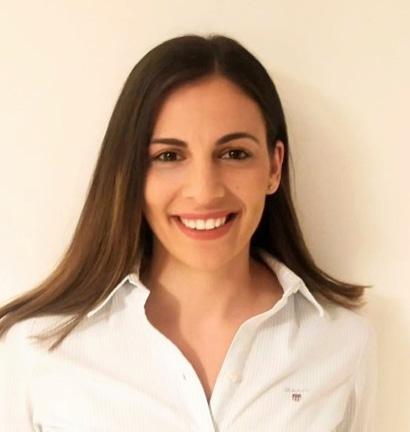
The College offers an exciting opportunity for special interest modules (SPIN) which you will be able to take alongside your specialty training or as a post-CCT doctor. The modules comprise additional training and experience in a specific clinical area, for example, HighDependency Care, Cardiology, Safeguarding, Diabetes, Allergy and Epilepsy.
Each SPIN module is supported by its own curriculum which lists the requirements you need to demonstrate to complete the SPIN training.
For further information including a full list of SPIN modules on offer, please visit: www.rcpch.ac.uk/SPIN
Paediatrics offers a wealth of opportunities for research or for pursuing an academic career. If following the standard paediatric training pathway described above, you can undertake research projects. But some enter into academic training, through an Academic Clinical Fellowship (ACF) post.
To apply for academic training, you'll need to register via National Institute for Health Research (NIHR): www.nihr.ac.uk/. The recruitment round typically takes place just before the full national recruitment process for specialty training. You will then combine your studies with clinical work, so you will also need to complete the standard National Recruitment process, as a benchmarking exercise, before you are formally appointed to your academic training post.
If you would like to take time out of your training, it is possible to go Out Of Programme (OOP). This time can be used to gain additional training or clinical experiences, for higher education, research or even a career break.
Examples of OOP include OOP Approved Training (OOPT) and OOP Research (OOPR), both of which are governed by the General Medical Council (GMC) and can contribute to your training progression.
Other OOP opportunities include:
• OOP Experience (OOPE), which cannot contribute to your training but offers the chance to explore areas of interest (such as leadership fellowships or teaching roles).
• OOP Career break (OOPC), which can be used for time out of training or to pursue other interests. Most trainees take OOP between ST3-ST5
See our training guide for more information: www.rcpch.ac.uk/training-guide
Less than full time training (LTFT) is widely supported within paediatrics. Paediatrics has higher numbers of LTFT trainees than most other medical specialties. We are keen to recognise initiatives to support these trainees and believe LTFT training can provide solutions for trainees who wish to combine family commitments or other interests with their career.
So, if working at a slightly less whole time equivalent (WTE) works to ensure your best work/life balance, you can discuss arrangements with your supervisor and training programme director.
The RCPCH also provides concessions on membership and training for trainees working seven or fewer sessions per week to further support flexible working.
www.rcpch.ac.uk/LTFT
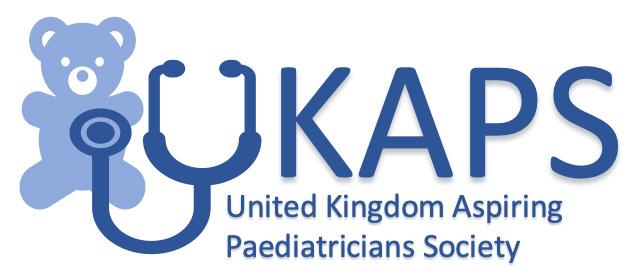
The UK Aspiring Paediatricians Society was founded in 2014 by Imperial and Newcastle Universities with the goal of connecting aspiring paediatricians and paediatric societies at medical schools across the UK. In 2016, they gained endorsement from RCPCH and have been working closely alongside them ever since to create opportunities for medical students and foundation doctors to explore a career in paediatrics.
Year on year UKAPS have continued to grow and offer more opportunities. They currently offer mentorship for foundation doctors and looking to expand this to final year medical students, annual conference, revision sessions, webinars on preparing for paediatrics applications and mock interviews. They also liaise with paediatric societies across the UK to share opportunities and even offer support for some events such as helping find speakers. RCPCH and UKAPS are always looking for new ways to support the paediatricians of the future.
If you would like to find out more about UKAPS or want to keep up to date with paediatric opportunities, visit:
Twitter: https://twitter.com/ukapstweets
Facebook: https://www.facebook.com/ukaps1
Instagram: https://www.instagram.com/ukaps_paediatrics/ Website: https://ukaps.home.blog Email: contact.ukaps@gmail.com
If you are a Student or Foundation member of RCPCH you will also receive our monthly newsletter, written with RCPCH, and giving you all the latest paediatric news and opportunities. If you’re not, then sign up, it’s completely free for students and foundation doctors!

As a member of RCPCH you’ll be joining a global community of over 21,000 paediatric health professionals. Included in membership are several fantastic benefits to get you started on your career in paediatrics.
• Membership is free for medical students and foundation doctors.
• Access to the latest news and updates on child health via regular emails, including a monthly one from UKAPS.
• Free online access to our journal, Archives of Disease in Childhood.
• RCPCH Learning is our online learning management system, giving you access to quality assured courses to support your professional development and clinical practice, with RCPCH Learning you’ll also have access to a range of eLearning and recordings of educational webinars: https://learning.rcpch.ac.uk
• Access to QI Central, our quality improvement sharing hub where you can find resources and examples of interventions in many clinical practice areas. https://qicentral.rcpch.ac.uk
• Access to the Child Protection Portal, this portal is dedicated to child protection and safeguarding, with essential resources to inform clinical practice, procedures, and professional and expert opinion in the legal system. https://childprotection.rcpch.ac.uk/
• Join our Climate Change Working Group and influence the direction of the College’s climate change work.
• We host a wide range of paediatric focused courses and events throughout the year, with a reduced rate for all members.
• Use of our brand-new members’ area at RCPCH HQ in London, with two meeting rooms and free tea and coffee.
• Tickets for our Annual Conference are only £30 a day for student members.
• With a TOTUM PRO card, all RCPCH members can access discounts and offers on a range of purchases both online and instore. With deals on groceries, eating out, health and fitness, fashion, music, technology and more.
• Access to the Research Funding Database.
• The College is continually providing updated policy and guidance for paediatric health professionals.
• As a member you’ll also receive Milestones, our quarterly magazine, written by members, for members. Each edition brings you the latest on College news, along with in-depth features on child health and articles covering life in paediatrics. It also covers regular items, such as our ‘Day in the Life of a Paediatrician’ and ‘Starter for Ten’, where we put 10 questions to paediatricians to see what makes them tick! We’ve also got dedicated wellbeing pages, including a regular column on baking from the College’s star baker Dr Ash Patel. The editorial team are always eager to hear contributions from students and foundation doctors.
Med student membership: www.rcpch.ac.uk/student-membership
Foundation Doctor membership: www.rcpch.ac.uk/foundation-doctor-membership
But wait, there’s more…
The RCPCH offers fantastic opportunities to outstanding undergraduates who demonstrate a real passion for paediatrics.
Each year, we ask university/medical schools and deaneries to nominate the most outstanding medical student/foundation doctor, from any year, with a keen interest in paediatrics. The winners get the opportunity to attend the RCPCH Annual Conference with all expenses paid by the College!
Read what Dr Blanche Lumb, RCPCH Trainee Representative for Recruitment had to say when attending the prize awards and judging one www.rcpch.ac.uk/judging-prize-reflections

Medical Student Prize www.rcpch.ac.uk/student-prizes
Foundation Doctor Prize www.rcpch.ac.uk/foundation-doctor-prizes
Tony Jackson Prize www.rcpch.ac.uk/tony-jackson-prize
“My other highlight from RCPCH Conference was meeting almost all of the medical student and foundation doctor prize winners across the three days. Each student and doctor I met was excited and interested in paediatrics and full of questions about the specialty as both a future job and a career.
Dr Blanche Lumb RCPCH Trainee Representatve for Recruitment“It is very satisfying to help support young people negotiate health services and work with them to create positive change to their health and wellbeing. You get to work with a lot of different professionals, both medical and non-medical, all with the common goal of helping a child or young person.
Dr Hannah Baynes General Paediatrician
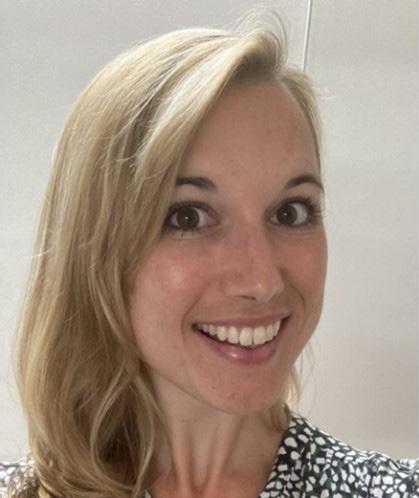

The teamwork, the patients and the variety within the specialty won me over, and I applied for paediatrics that year. During my training, I have really enjoyed working in the wide variety of specialties that paediatric incorporates.
Felicity Beale Trainee PaediatricianOur patients don’t need to say thank you –just a smile from them tells us more than a thousand words.
RCPCH Officer for Recruitment Dr Simon BroughtonClick on the links below to view a range of resources and activities you can take part in. You can also follow us on social media for the latest #ChoosePaediatrics news and resources.
Check out the delicious recipes written by our members that you and your colleagues can try out today.
www.rcpch.ac.uk/membersrecipes
Hear about the latest news, activities, reflections and exciting projects in the quarterly Milestones magazine.
www.rcpch.ac.uk/milestones
Take a look at the variety of videos we have to offer ranging from our campaign videos, workshops and specialty training webinars explaining the recruitment process with top tips on how to make a successful application.
www.bit.ly/choosepaediatrics-playlist
Follow us on social media where you can keep up with the latest updates and resources about the ChoosePaediatrics Programme. Let us see your fun-filled pictures which could be a group shot on the ward, an event/conference picture, or a picture of you and your colleagues holding a #ChoosePaediatrics sign!
www.instagram.com/rcpch/
Listen to our podcasts and read blogs around wellbeing as a healthcare professional. You can also send in your stories as we would love to hear from you.
www.rcpch.ac.uk/yourwellbeing
www.twitter.com/ RCPCHtweets
© RCPCH 2022
Royal College of Paediatrics and Child Health 5-11 Theobalds Road, London WC1X 8SH
The Royal College of Paediatrics and Child Health (RCPCH) is a registered charity in England and Wales (1057744) and in Scotland (SC038299).